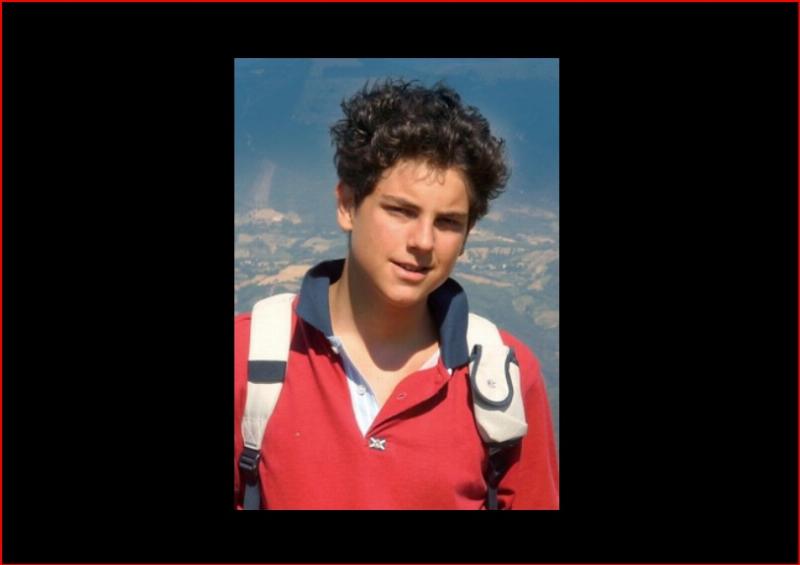


Amid heavy fanfare, the Vatican canonized two young saints of the Catholic Church today, one of whom was improbably born and died just a few years ago, Carlo Acutis, the Millenial saint, the patron saint of the Internet, who tragically died of leukemia in Monza, Italy, at the age of 15. His brief life spanned from 1991 to 2006.
The photo of his handsome, beaming, boyish face, clad in hoodies and jeans, have been analyzed in the press as the Vatican's bid to make itself relevant to youth, kind of a marketing tool, an icon in more senses than the usual one. As a result, some doubt that he's really a saint like saints of old, he's just useful for the Vatican's purposes.
Oh, the hype goes on and on.
Much has been made of his internet skills, that he, like many bright Millennials, could design and code a website -- here -- to chronicle, in our modern data-processing way -- the reported miracles of the Holy Eucharist. Kind of a nice legacy for a kid to leave behind.
But actually, he wasn't such an unusual saint -- he put in the hard work of being saint, the old fashioned way.
According to Britannica, he seemed to be more about doing good works without telling anyone than he was about tech savvy, as good as that was. That was obvious enough at his funeral, where large numbers of people he had done charitable acts for showed up, apparently surprising a lot of people.
Britannica, which has a very good bio of him with many links, noted these details, great acts of charity done the "little way" which stood out to me:
Acutis showed interest in helping others from a young age. He frequently defended schoolmates who were bullied, and he spent money he had earned on items for people experiencing poverty, such as a sleeping bag for a man without a home whom he encountered on the way to his church. He also sought to help elderly and disabled people in his community as well as refugees. His devotion inspired his parents to become practicing Catholics, and his mother became especially devout, enrolling in a theology course so that she could better answer her son’s religious questions.
It reminds me of the childhood of St. Joan of Arc. who died about the same age as St. Carlo -- in Mark Twain's biography of her, he described how little Joan would give her only porridge to homeless veterans who dotted the French countryside in the wake of extended war and waste, and get yelled at for it by her father.
This part about the "good marks" and "bad marks" by the budding data scientist collecting his data is pretty cute, too, except that it's a mirror image of the Christian, Augustinian practice of examination of conscience.
The funeral is where the real story is told:
In October 2006, when he was 15 years old, Acutis fell ill with what his parents initially believed was the flu. When his symptoms worsened, he was taken to a hospital in Milan, where he was diagnosed with acute myeloid leukemia and offered his sufferings to Pope Benedict XVI and the church. He was transferred to a hospital in Monza, Italy, and within a few days he suffered a cerebral hemorrhage and fell into a coma; he was pronounced dead on October 12. The church where his funeral service was held was described as overflowing with people he had helped throughout his short life. Initially buried in a cemetery in the village of Ternengo, his body was reburied in January 2007 in Assisi, which he had requested because of his devotion to St. Francis of Assisi.
So he spent his life doing one good act after another. and in what must have impressed his wealthy bankerly parents, let it pile up like compound interest. That was what he spent his life doing. The computer stuff was public relations. The real stuff was in his acts of charity which require no education, no status, no knowledge -- just goodness available to all.
That is what makes him a saint. It's a great thing that he was made one in our age.
Image: Wikipedia // fair use cited
